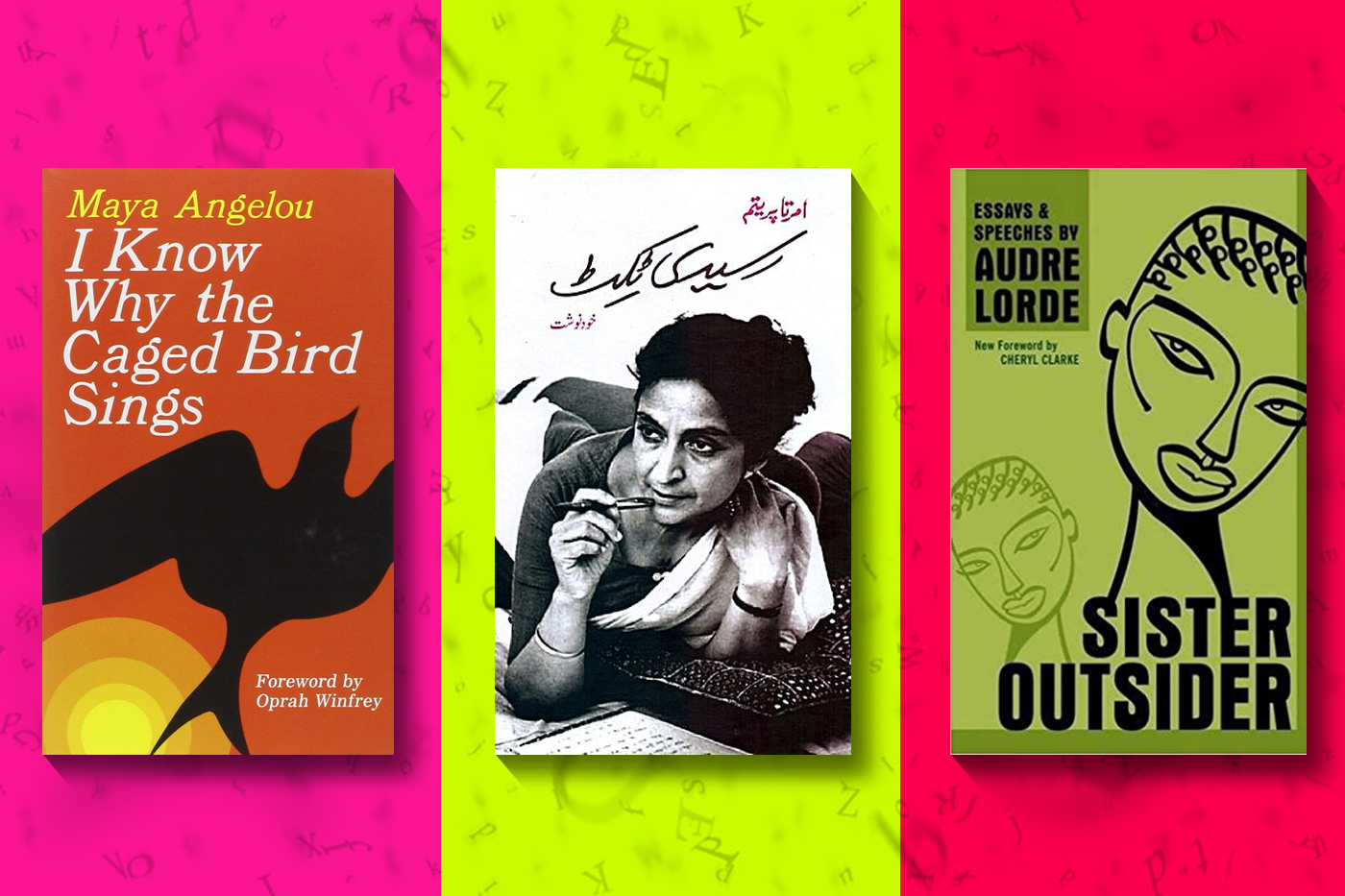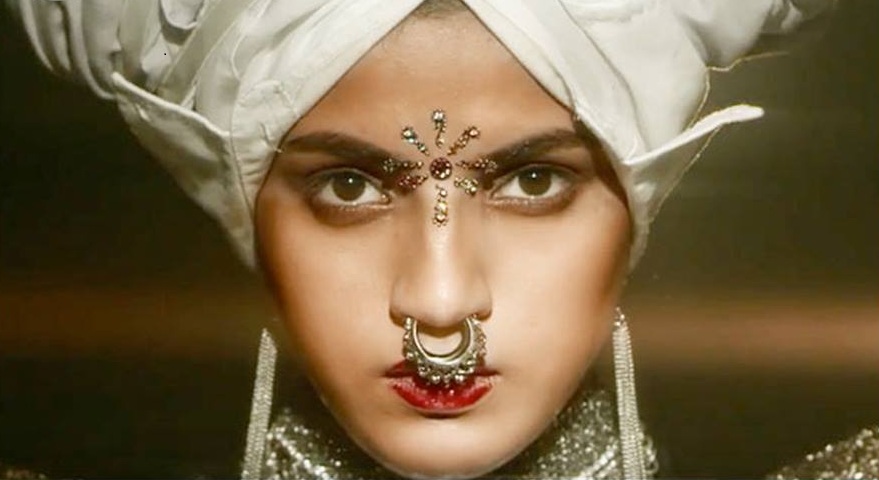The Diary of Queen Shugufta, age 16, and Nimko King, 3½
Entry 7: Writers of the Warrior Path
All this #metoo stuff has got me thinking about all the shit that women go through. How can we endure all of the misogyny, prejudice, harassment, and still come out whole? I’m still figuring it out tbh, but here are three works that have helped me in this journey. They are from writers of the warrior path, that is, writers who have taken pain and transformed it into power, who live with joy and love in a sometimes cruel world, and teach others to do the same. Enjoy.
1. I Know Why the Caged Bird Sings by Maya Angelou
This book opens with Maya Angelou and her beloved brother Bailey being sent to live with their grandparents when they are three and four. It follows Maya’s life with her grandparents, spending time in their family-owned store, going to church, and facing the violent racism of the time. If you know of adult Maya Angelou, if you’ve seen her on Oprah or heard her poetry, you know she’s as fierce as fierce can get. And that’s why it’s all the more potent when you read how she felt, as a little black child growing up surrounded by this racism and beauty standards shaped by whiteness, thinking,
‘Wouldn’t they be surprised when one day I woke out of my black ugly dream, and my real hair, which was long and blond, would take the place of the kinky mass that Momma wouldn’t let me straighten?’
Halfway through the book, Maya and Bailey move back in with their mother, and here, at the age of eight, Maya is raped by a family acquaintance. The events are described in heart-breaking detail, from a child’s point of view. And then, the slow shock and the wounds left over are similarly dissected. The young Maya then begins to heal, and slowly, we start to understand how this girl, struggling with things no girl should have to struggle with, grows into the magnificent woman who goes on to write memoirs, novels, and poems like ‘Phenomenal Woman’ and ‘Still I Rise’ (you can hear her recite these on youtube). Caged Bird shows us key moments in the making of Angelou’s life, and leaves us with a sense that everything can be overcome, and that the secret, as cliché as it sounds, is love.
2. Raseedi Ticket by Amrita Pritam
Amrita Pritam was a Punjabi novelist and poet, and Raseedi Ticket is her autobiography. Here, amongst other things, she speaks of her deep, passionate, love for the poet Saahir Ludhianvi. Their love sounds like something predestined; Amrita dreams of Saahir before ever even meeting him. But things don’t work out. It’s hard to say why, but it appears that Saahir lacks the courage to allow it. Then, there are the most beautiful passages on love and heartbreak, as Amrita describes in detail her pain, her dreams, her thoughts, and poetry in the moments when her love is taken away from her. Slowly, Amrita pulls herself out of this heartbreak, through deep female friendships, and her love for literature. She goes on to fall in love again, to end her own unhappy marriage and begin a life with the artist, Imroz. And yet, she allows her love for Saahir to remain; she does not crush it out of bitterness and disappointment, but instead celebrates and mourns it throughout her life. This skill, of letting the heart sing through disappointment and heartbreak, is formidable, and I think we have a lot to learn from it.
At times, the narrative drags. At others, Pritam comes off as boastful; she talks at length about her accomplishments, and gives the impression that she considers artists superior to ‘ordinary’ folk. Laykin, putting that aside, it’s well worth reading, very inspiring, to see how Amrita followed the calling of her own heart over all others, at all times. It’s also fascinating to read about how Amrita navigates the toxic, male-dominated Indian/Pakistani literary circles. At times, the vicious gossip and rumours that spread in these circles, about both her personal life and her work, cause her deep pain. But she confronts them and doesn’t let them affect her sense of self.
Incidentally, there’s a chapter early in the memoir called ‘mera sohlwa (matlab sixteenth) saal’. Here, she talks about how all kinds of romantic and funny ideas start entering her mind and body when she turns sixteen, but there’s no real outlet because her mom has passed away and her dad is super strict, so she has to act all seedhi saadhi while secretly writing cheesy poetry and reading romance novels. I like this section; it reminds me of me and it also gives me permission to be me. I read this book in Urdu but it’s also translated into English if that’s what you prefer.
3. Sister Outsider by Audre Lorde
This collection of essays blew my mind. Audre Lorde is a Black American poet, who is preoccupied with breaking open silence and shame, and forming sisterhoods and solidarity. ‘Your silence will not protect you,’ she says in one of the essays ‘The Transformation of Silence into Language and Action’. In this essay, Lorde talks about her breast cancer surgery. The tumour turned out to be benign, but faced with her mortality, with the realisation that she will die, we all will die, she comes to the conclusion that we must speak the truth. In the next essay, ‘Poetry is not a Luxury,’ she says this:
‘For each of us as women, there is a dark place within where hidden and growing our true spirit rises … Within these deep places, each one of us holds an incredible reserve of creativity and power, of unexamined and unrecorded emotion and feeling. The woman’s place of power within each of us is neither white nor surface; it is dark, it is ancient, and it is deep’
In that essay, and in her others, she encourages us to move away from a largely white, male understanding of power and instead come into our own real deep instinctive power. This book isn’t always easy reading, but it’s worth it.
Love and solidarity,
Shugufta.
This story is part of a series, which is updated weekly. You can read the previous entry here.





